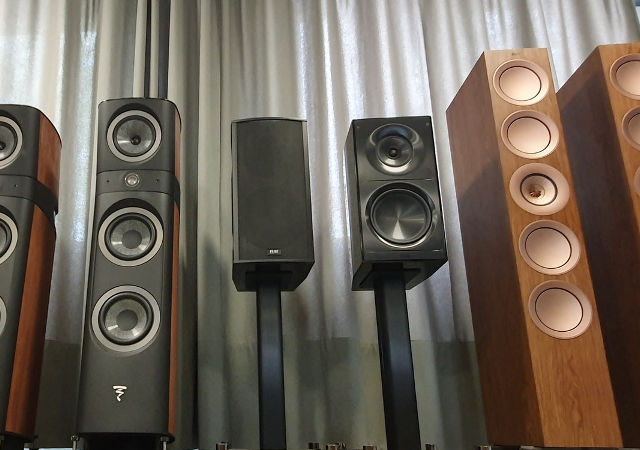Are you planning to buy a new pair of speakers or are simply curious about the difference between a 4ohm and 8ohm speaker, then look no further because this blog post will answer your question. And also enable you to decide to either get 4 Ohm or 8 Ohm speakers for your sound system. If you are wondering what is Ohm, the straightforward answer will be it is a unit of measure for speaker impedance.
Table of Contents
What is Speaker Impedance?
You must be wondering now what is this speaker impedance we’ve just mentioned earlier. The speaker impedance is almost like resistance where it restricts the flow of electrical current. Generally, resistance is constant and speaker impedance will change based on different audio frequencies. Lower speaker impedance ratings would require more amplifier power than speakers with higher impedance ratings to reach moderate volume levels.

When you read the specs of a speaker, you will find the nominal impedance rating and it is usually 8 Ohms or 4 Ohms. The speaker’s specs may also show you the minimum impedance it may reach and could even go below 4 Ohms. There are also speakers with 6 Ohms or 16 Ohms or other ratings, it is recommended to check before purchasing these speakers. If a pair of speakers you are interested in did not show their impedance ratings on the website, you might want to contact the manufacturer or dealer to request for them. We will be explaining to you why later in the next section.
What are the Differences between 4 Ohm and 8 Ohm Speakers
8 Ohm speakers will require lesser amplifier power than 4 Ohm speakers to reach the same volume level. You will need amplifiers capable of driving speakers with specific impedance ratings to get optimal sound quality. For instance, a 4 Ohm speaker driven by an amplifier that is only able to drive speakers with higher impedance ratings such as 8 Ohms may cause distortion or sound bad throughout the music playbacks. This is why it is important to find out about the impedance rating of the potential loudspeakers you are going to get so to ensure your amplifier could drive them efficiently.

There are some audiophiles who prefer to only use 4 Ohms speakers in their sound system setup as they find such speakers have higher sound quality. This is why they are willing to spend more on these speakers and on amplifiers that could drive them optimally. 8 Ohms speakers are usually easier to drive and don’t really need an amplifier that is too powerful, and this also means they are more affordable to set up. Whether the sound quality is better with a 4 Ohm speaker or not, it is wise to listen to the speakers with your own ears to determine this difference.
To Sum It Up
4 Ohm speakers will need more amplifier power than 8 Ohm speakers to produce the same level of volume. You will need a matching amplifier with enough wattage to drive these speakers. 8 Ohms speakers should be connected to the amplifier’s 8 Ohms speaker outputs and 4 Ohms speakers should be connected to the amplifier’s 4 Ohms speaker outputs. Some amps allow the user to switch between 8 Ohms or 4 Ohms amplifier outputs. If the impedance of the speakers and amplifiers are mismatched, not only the sound quality is negatively affected, but this may also damage the speakers or the amplifiers or both.
We hope this blog post has helped answer your question about the differences between 4ohm and 8ohm speakers, enabling you to make a more informed decision. If you really want to play safe, you can contact the speaker manufacturer and ask which amplifiers are more suitable to match the models you are interested in. You can also check out our blog posts regarding the best matching amplifiers for various speaker models.



